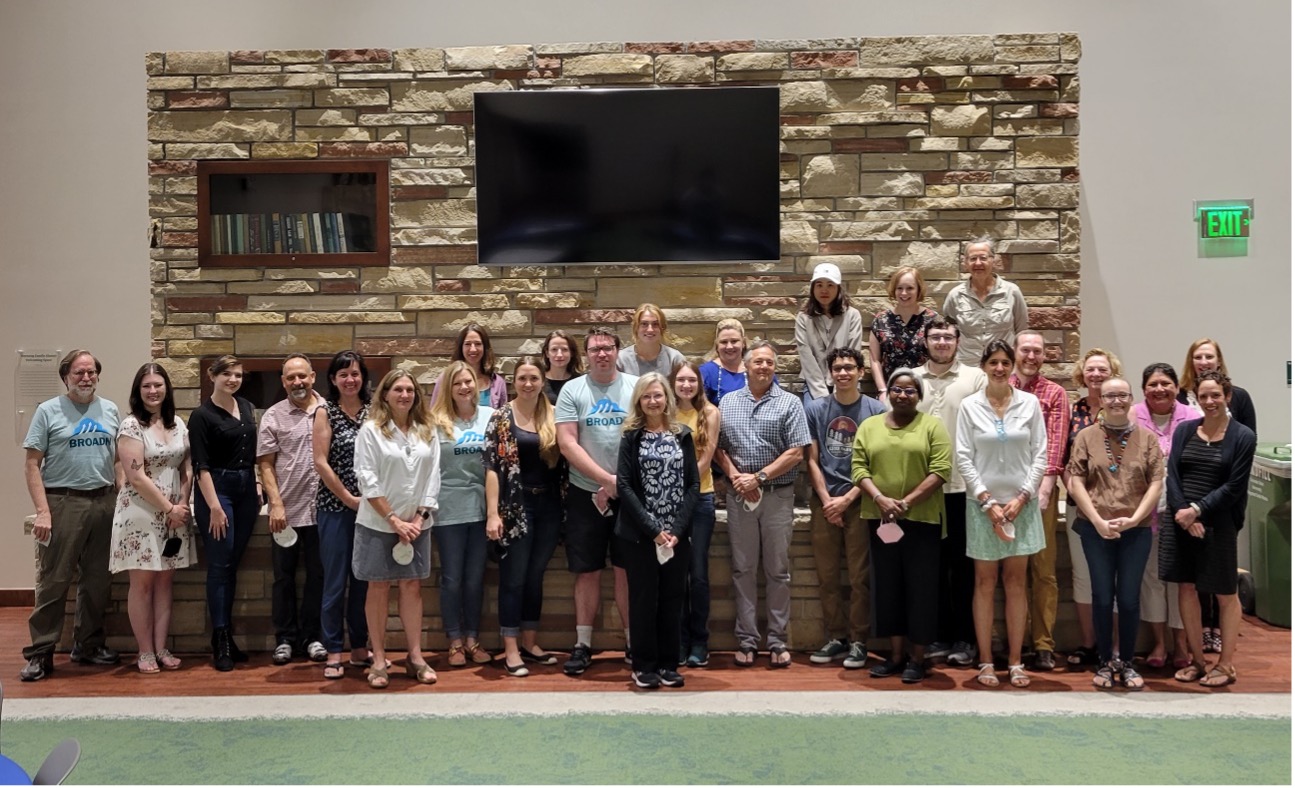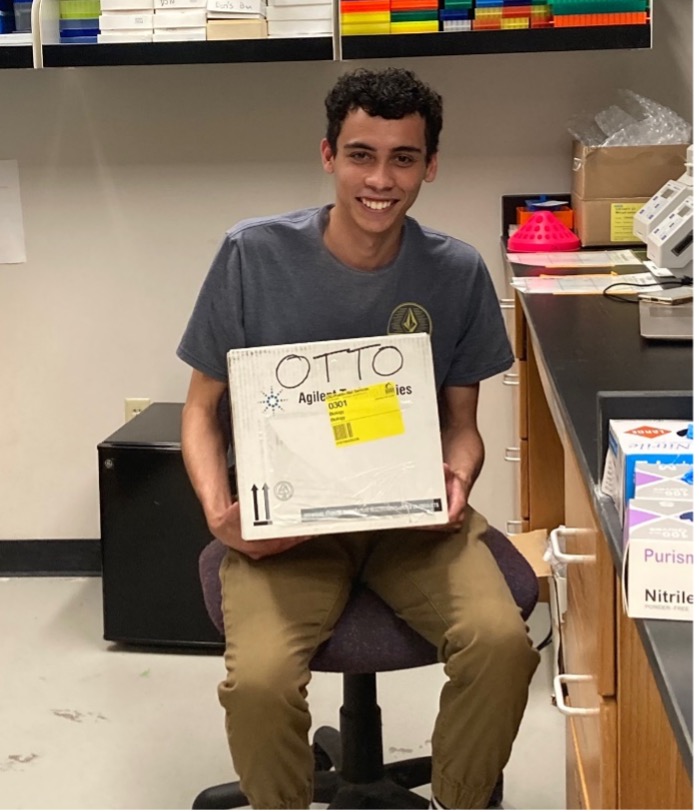
The BROADN Research team and their Scientific Advisory Board gathered in July this year for their first annual summer symposium.
A new research project that aims to broaden our understanding of the air we breathe is also broadening a diverse, new group of students in STEM (science, technology, engineering, and mathematics).
Uniquely encompassing this overarching goal in its name, the BROADN project consists of researchers and students from four universities who investigate how microscopic organisms that live in the air can impact human, animal and environmental health.
An important piece of the project’s success, “BROADNing Participation,” works to develop interdisciplinary research and training programs for the next generation of biological researchers, primarily students in STEM fields. The project’s goal is to recruit a diverse group of students throughout the next four years. By having access to mentorship from research faculty within different universities, students have an opportunity to explore their passion in science through a guided, hands-on experience.
BROADN works achieve diversity, equity, and inclusion in STEM fields
“Historically, science hasn’t been a diverse field,” said Franziska Sandmeier, collaborator and professor at CSU-Pueblo specializing in respiratory microbes, disease ecology, and biology. “The BROADN project is a remedy to some of the historical faults in STEM fields. The financial support offered to our students in Pueblo through this project extends the time that they can participate and learn from the mentors they choose.”
The project provides significant tuition support for students who are passionate about studying the aerobiome. Undergraduate, master’s and doctoral students have opportunities to collaborate on the project and can learn the ins and outs of academic research. BROADN hosts its own doctoral program and welcomes student applicants on a semester basis who are interested in studying microbes in the air. The project will also soon be recruiting students to participate in a research experiences for an undergraduate program that will begin in the spring semester.
“Diverse student representation in STEM fields through projects like BROADN ensures diversity in scientific questions,” said Amaya Garcia Costas, assistant professor of biology at CSU-Pueblo and BROADN collaborator. “Asking a diverse set of questions is crucial to solving the most complex scientific challenges, and this project gives students a voice to investigate the questions that matter to them.”
BROADN provides research experience to CSU-Pueblo students

CSU-Pueblo master students are participating in this aerobiome research and being supported by BROADN. Eventually, they will have the option to join the doctorate program in Fort Collins.
“This project is exciting because it provides a more generalized understanding of the air and the things that we breathe in,” said Adam Gillison, a master’s student at CSU-Pueblo working on sampling for the project.
Currently investigating how air samples respond to Ultraviolet light exposure, Adam has enjoyed telling his friends and colleagues about the program. “A lot of people don’t realize that microbes live in the air, and the work we are doing is important and could lead to impactful communication to the general public,” he said.
Tori Martinez, another master’s student at CSU-Pueblo, spent time in Fort Collins this summer assisting researchers with air sampling for the project. During this time, she was able to guide a group of undergraduate students through sampling protocols and felt that she was given a level of autonomy and trust unique to her education experience.
“I chose to attend CSU-Pueblo for the cost, so having the opportunity to tap into expertise and mentorship at other large universities has been so integral to my professional development,” Martinez said.
She added: “I am grateful to be a part of this research community because not everyone gets an opportunity like this. I am determined that no matter where my career takes me, the work I’m able to do on this project will give me communication and research skills that will propel me to a successful future.”
The NSF award number is 2120117.
The BROADN Project is housed within the One Health Institute at CSU.